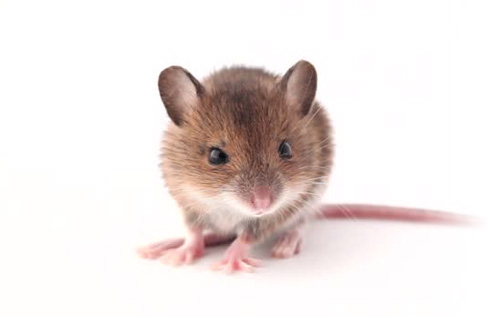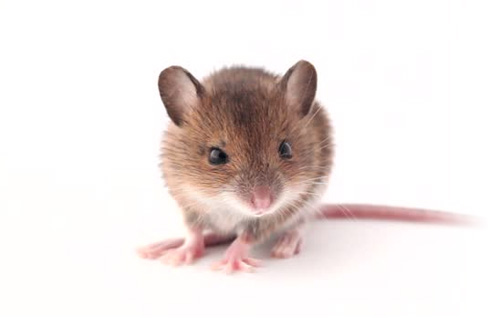
Mice Control
- Protect Your Home
- Protect Your Business
- Food Safety
Mice are small rodents that belong to the Mus genus. They are prevalent throughout the world and are known for their ability to adapt to various environments. Often necessitating effective Mice Pest Control measures. Mice have a compact body, large ears, a long tail, and a pointed snout. They are prolific breeders and can quickly establish a presence in and around human habitats.
Understanding the causes of mice infestations and effective methods for getting rid of them is essential for maintaining a mouse-free home. Let’s explore these features in further depth.
What are Mice?
Mice are small rodents that are often considered pests due to their ability to damage property, contaminate food, and transmit diseases. The most common species found around homes are the house mouse (Mus musculus) and the deer mouse (Peromyscus maniculatus). These rodents have a high reproductive rate, with a female mouse capable of producing several litters per year.
What Causes Mice Around Your House?
Several factors can attract mice to your house:
Food sources: Mice are opportunistic eaters and are drawn to easily accessible food. They can consume a wide range of food items, including grains, seeds, fruits, and even garbage. Improperly stored food or open food containers can attract mice to your home.
Shelter and nesting sites: Mice seek shelter in warm and protected areas. Cluttered spaces, gaps in walls or foundations, and hidden areas like attics, basements, and crawl spaces provide ideal nesting sites for mice.
Water sources: Mice require water to survive. Leaky pipes, condensation, or standing water can attract mice seeking hydration.
How to Get Rid of Mice?
To effectively eliminate mice from your home, it’s crucial to implement a comprehensive approach that combines preventive measures, trapping, and exclusion techniques. Here are the key steps:
Seal entry points:
Inspect your home for any openings that mice can use to enter, such as gaps in walls, doors, or windows. Seal these entry points with materials like caulk, steel wool, or metal mesh.
Remove food sources:
Store food in airtight containers, clean up spills and crumbs promptly, and secure garbage in tightly sealed bins. By removing access to food, you discourage mice from entering and staying in your home.
Set traps:
Various types of traps are available, including snap traps, glue traps, and humane catch-and-release traps. Place traps in areas where mice are active, such as along walls, near droppings, or in known pathways.
Practice proper sanitation:
Keep your home clean and free of clutter. Implementing Mice Pest Control measures. Regularly vacuum and sweep floors, especially in areas where mice are commonly found. Dispose of trash properly and maintain cleanliness in storage spaces.
Consider natural deterrents:
Some scents are believed to repel mice, such as peppermint oil, ammonia, or vinegar. Soaking cotton balls in these substances and placing them near entry points or areas of mouse activity may help deter them.
Consult professional pest control:
If the infestation persists or becomes severe, it may be necessary to seek the assistance of a professional mice pest control service. They can provide expert advice and implement more advanced measures to eliminate mice from your home.
What Keeps Mice Away?
Taking preventive measures is key to keeping mice away from your house. You can do the following extra actions as well:
Maintain cleanliness:
Regularly clean your home, paying attention to areas prone to crumbs, spills, or food remnants. Mice are less likely to be attracted to an environment with limited food sources.
Seal potential entry points:
Inspect your home for any openings that mice could use to enter. Seal them with materials that mice cannot chew through, such as steel wool or metal mesh.
Trim vegetation:
Keep tree branches and shrubs trimmed away from the exterior of your home. Mice can use these as pathways to access your house.
Store firewood properly:
If you have firewood, keep it elevated and away from the exterior walls of your home. Mice can hide and nest in woodpiles, providing them with easy access to your house.
Regularly check for signs of infestation:
Be vigilant for signs of mice, such as droppings, gnaw marks, or chewed wires. Identifying an infestation early allows for prompt action.
For more information about Cockroaches Pest Control in Dublin, please contact us!
FAQ?
1. Are mice dangerous?
Mice can carry and transmit diseases, contaminate food, and cause damage to property by chewing on wires, insulation, and furniture.
2. How do I know if I have a mouse infestation?
Signs of a mouse infestation include droppings, gnaw marks on surfaces, shredded materials (such as paper or fabric) for nesting, and a distinct musky odor.
3. Can mice climb?
Yes, mice are excellent climbers and can easily scale vertical surfaces, such as walls or furniture.
4. How long do mice live?
The average lifespan of a mouse in the wild is typically around 1 to 2 years. However, under favorable conditions, they can breed and establish populations quickly.
5. What diseases can mice transmit to humans?
Mice can carry and transmit diseases such as hantavirus, salmonellosis, and leptospirosis. It is essential to take precautions when handling mouse-infested areas or cleaning up their droppings.
By understanding the nature of mice, addressing the causes of infestation, and implementing effective mice pest control measures, you can successfully eliminate mice from your home and reduce the risk of future infestations. Remember to combine preventive measures, proper sanitation, and trapping techniques to ensure long-term success. If needed, consult with central pest control for expert advice and assistance in dealing with persistent mouse issues



